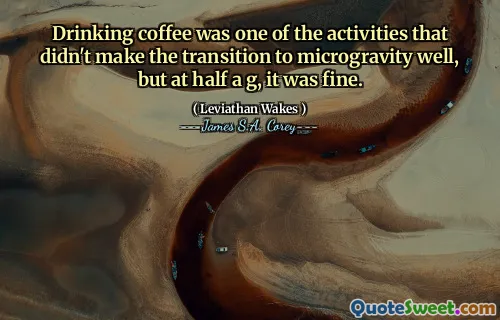
Do people talk about the war? Miller asked. Often, the missionary said. Anyone make sense of it? No. I don't believe war ever does. It's a madness that's in our nature. Sometimes it recurs; sometimes it subsides. Sounds like a disease. The herpes simplex of the species? the missionary said with a laugh. I suppose there are worse ways to think of it. I'm afraid that as long as we're human, it will be with us.
This quote offers a sobering reflection on the persistent and nearly inevitable nature of conflict within humanity. The conversation captures a sense of resignation but also a recognition of war as an intrinsic part of human existence. Comparing war to a disease, specifically herpes simplex, underscores its unresolvable, recurrent nature—something embedded in our biological and psychological makeup, capable of flaring up unpredictably. The metaphor of war as madness within our gene pool implies that, despite technological and societal advancements, humanity carries a genetic or cultural predisposition towards violence and destruction. There's an almost cosmic pessimism in the acknowledgment that war may never truly be eradicated, only temporarily subdued. However, within this bleakness, there's a subtle humor—cited by the laugh when comparing war to a disease—perhaps revealing a coping mechanism, a way to confront the darkness with levity. Such reflections are relevant today as much as they are historically; conflicts continue to recur globally, often fueled by complex socio-political factors that seem deeply rooted in human nature. Recognizing this inherent tendency urges us to reflect on our capacity for empathy, restraint, and the pursuit of peace, understanding that our struggle may be internal more than external. This insight reminds us that understanding the nature of our impulses can be the first step toward mitigating their destructive consequences, though complete eradication might be an elusive goal.







